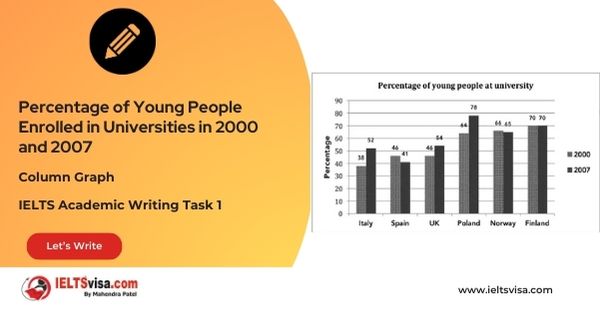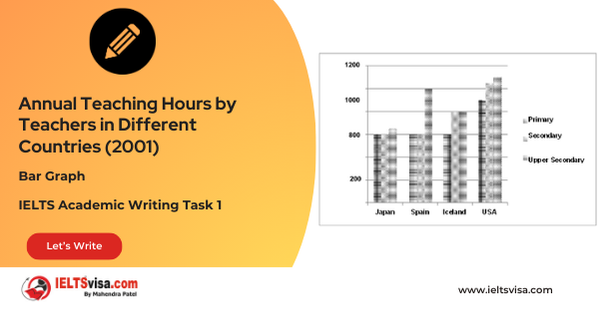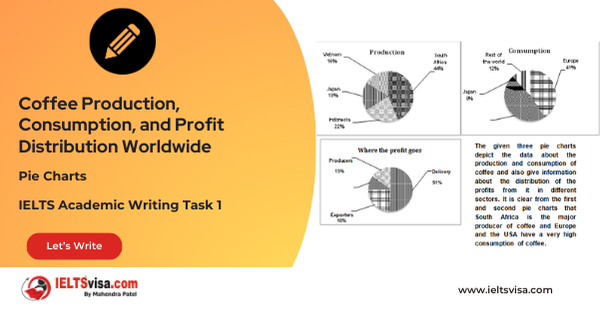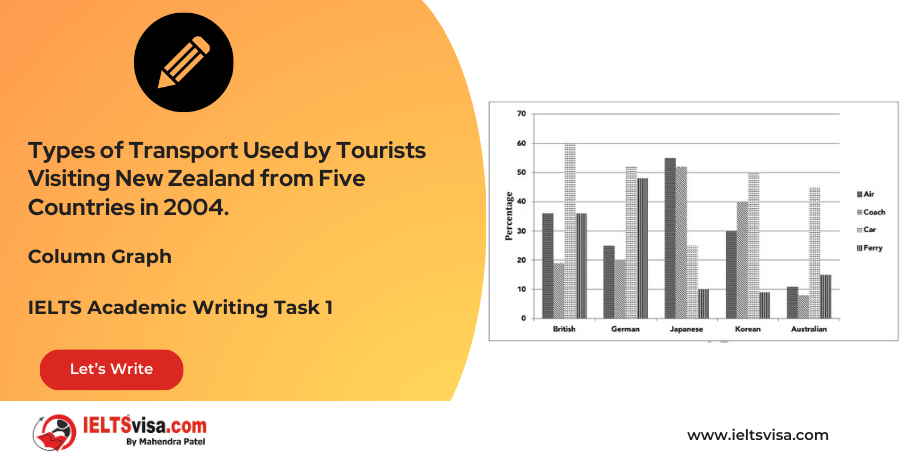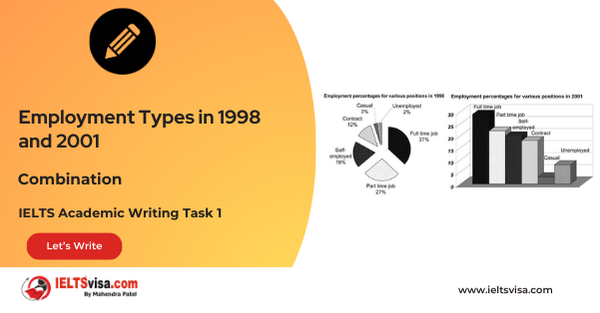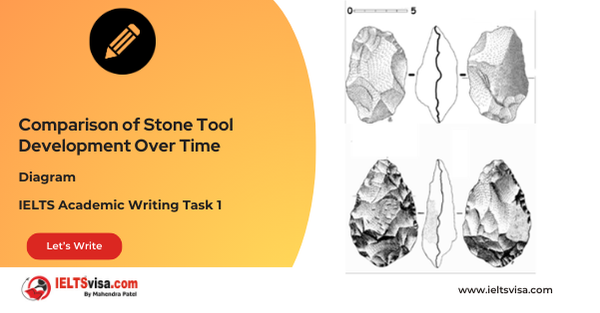The time spent at leisure and household activities in Britain
IELTS Academic Writing Task 1 - Combinations
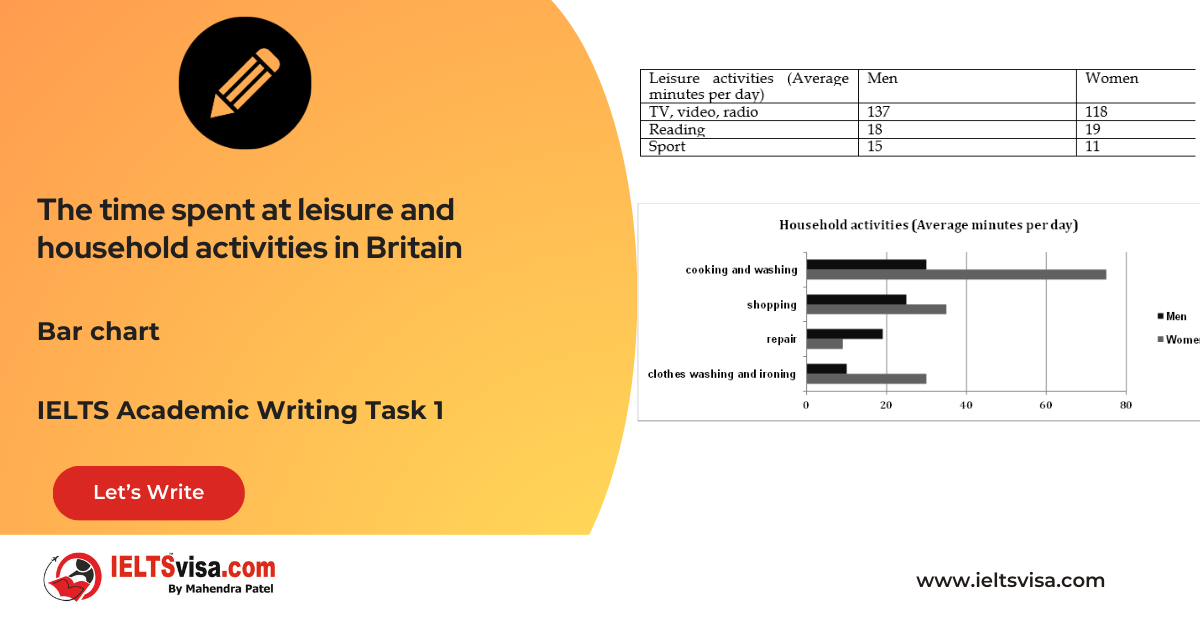
IELTS Writing Task 1 Question
The table and chart below show the time spent at leisure and household activities in Britain. Summarise the information by selecting and reporting the main features and make comparisons where relevant.
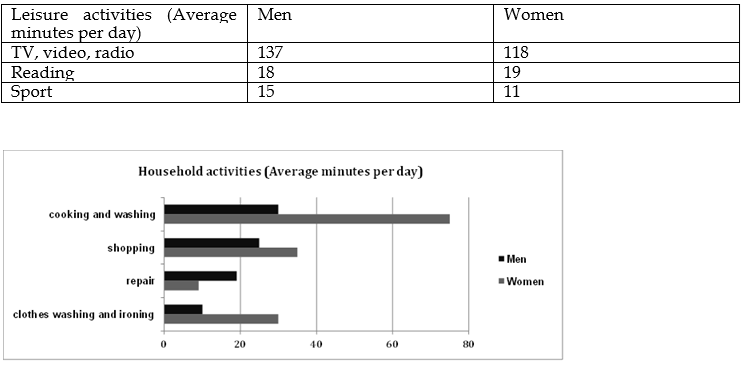
Common Questions for the Table and Bar Chart
1. Graph Type: Table and Bar Chart
2. Title: Time Spent on Leisure and Household Activities in Britain
3. What are the units of measurement?: Time in minutes per day
4. Who: Men and women in Britain
5. When: Not specified (example uses 2008)
6. Where: Britain
7. Topic: Comparison of time allocation for household and leisure activities by gender
Comparison Showing and Trends Any change over time (such as an increase or a decrease) is a trend.
Comparison 1 : Household Activities
- Details:
1. Cooking and Washing: Women spend 75 minutes daily, more than double the 30 minutes spent by men.
2. Shopping and Laundry: Women allocate 35 and 30 minutes, while men spend negligible time on these tasks.
3. Repair Work: Men spend 19 minutes, more than twice the time spent by women (8 minutes).
Comparison 2 : Leisure Activities
-
Details:
1. TV, Video, and Radio: Both genders spend around two hours daily, which is the most popular leisure activity.
2. Reading: Both spend roughly 20 minutes, with no significant difference.
3. Sports: Men spend slightly more time than women, though it remains the least time-consuming leisure activity.
Sample Answer
The bar chart and table compare the daily time men and women spend on household and leisure activities in Britain.
Overall, women spend more time on household tasks than men, except for repair work, while both genders allocate similar amounts of time to leisure activities.
In household activities, women dedicate 75 minutes daily to cooking and washing, more than double the 30 minutes spent by men. Compared to negligible contributions from men, shopping and laundry are also primarily done by women, who spend 35 and 30 minutes, respectively. Conversely, men spend 19 minutes on repair work, more than twice the time women allocate to this task (8 minutes).
Regarding leisure activities, watching TV, videos, and listening to the radio are the most popular, with both genders spending around two hours daily. Reading occupies about 20 minutes per day for both men and women, while sports receive the least attention, with men spending slightly more time than women.
Top 25 Vocabularies
| Vocabulary | Type |
Meaning | Synonyms | Examples |
| Contribution | Noun | The role played or input provided | Participation, Involvement | Men’s contribution to repair work is significant. |
| Leisure | Noun | Free time for enjoyment | Recreation, Relaxation | Leisure activities include TV, reading, and sports. |
| Popular | Adjective | Widely liked or preferred | Common, Favored | TV and radio are the most popular leisure activities. |
| Compare | Verb | To examine similarities and differences between two things | Contrast, Differentiate | “The bar chart compares the daily time spent by men and women.” |
| Spend | Verb | To use time or money for a particular purpose | Use, Devote | “Women spend more time on household tasks than men.” |
| Household | Adjective/Noun | Relating to the house or home, or activities in a home | Domestic, Home | “Women spend more time on household chores than men.” |
| Task | Noun | A piece of work to be done | Job, Duty | “Cooking and washing are common household tasks.” |
| Repair | Verb/Noun | To fix or restore something to its original state | Fix, Mend | “Men spend more time on repair work than women.” |
| Negligible | Adjective | So small or unimportant that it can be disregarded | Insignificant, Minimal | “Men’s contribution to laundry is negligible.” |
| Dedicate | Verb | To set aside for a particular purpose | Devote, Allocate | “Women dedicate more time to shopping and cooking.” |
| Contribute | Verb | To give or add something to a common resource | Add, Provide | “Men contribute significantly to repair work.” |
| Leisure | Noun | Time spent away from work or duties to relax or enjoy | Free time, Recreation | “Leisure activities include TV, reading, and sports.” |
| Popular | Adjective | Liked or enjoyed by many people | Common, Favored | “TV is a popular leisure activity.” |
| Time-consuming | Adjective | Taking a lot of time to do | Lengthy, Demanding | “Household chores can often be time-consuming.” |
| Minimal | Adjective | Very small or insignificant | Negligible, Minor | “Men’s time spent on laundry is minimal.” |
| Significant | Adjective | Having importance or value | Major, Notable | “Repair work is a significant task for men.” |
| Slightly | Adverb | To a small degree | Marginally, A little | “Men spend slightly more time on sports than women.” |
| Dominantly | Adverb | In a way that has the most influence or control | Predominantly, Chiefly | “Women dominantly perform household chores.” |
| Neglect | Verb | To fail to care for or attend to something | Ignore, Overlook | “Men tend to neglect tasks like laundry and cooking.” |
| Attract | Verb | To draw interest or attention | Draw, Appeal | “Sports activities attract less time than other leisure activities.” |
| Trend | Noun | A general direction in which something is developing | Pattern, Movement | “The trend shows that women spend more time on household chores.” |
| Increase | Verb/Noun | To become larger or greater | Grow, Rise | “The amount of time spent on leisure activities has increased.” |
| Minimal | Adjective | Slight or insignificant | Small, Negligible | “Sports receive minimal attention compared to other leisure activities.” |
| Vary | Verb | To differ or change | Differ, Change | “The time spent on different activities may vary between individuals.” |
| Allocate | Verb | To distribute or assign resources or time | Distribute, Assign | “Men allocate equal amounts of time to different leisure activities.” |

Our Books
Master IELTS Speaking Part 1
IELTS Writing Task 1 Book
IELTS Writing Task 2 Book
Writing Task 1 Question Types
Practice IELTS Other Modules
IELTS Listening
The IELTS Listening test assesses how well you can understand spoken English in various contexts. It lasts about 30 minutes and is divided into four sections with a total of 40 questions. The listening tasks become increasingly difficult as the test progresses.
IELTS Academic Reading
The IELTS Academic Reading section assesses your ability to understand and interpret a variety of texts in academic settings. It is designed to evaluate a range of reading skills, including skimming for gist, reading for main ideas, reading for detail, understanding inferences, and recognizing a writer's opinions and arguments.
IELTS Speaking
The IELTS Speaking test assesses your ability to communicate in English on everyday topics. It lasts 11-14 minutes and consists of three parts: introduction, cue card, and a discussion based on the cue card topic.
IELTS General Reading
IELTS General Reading tests your ability to understand and interpret various types of texts. Here are some key areas and types of content you can expect to encounter in the reading section, along with tips for effective preparation.
IELTS Academic Writing Task 1
In IELTS Academic Writing Task 1, you are presented with a visual representation of information, such as graphs, charts, tables, or diagrams, and you are required to summarize, compare, or explain the data in your own words.
IELTS General Writing Task 1
In IELTS General Writing Task 1, you are required to write a letter based on a given situation. The letter can be formal, semi-formal, or informal, depending on the prompt. Here’s a breakdown of the key components to include in your letter
IELTS Academic Writing Task 2
In IELTS Academic Writing Task 2, you are required to write an essay in response to a question or topic. Here’s a guide to help you understand the essential elements of this task
IELTS Exam Tips
To succeed in the IELTS exam, practice regularly, familiarize yourself with the test format, improve your vocabulary, develop time management skills, and take mock tests to build confidence.
Grammer for IELTS
Grammar is the foundation of effective communication in English. Understanding tense usage, subject-verb agreement, and sentence structure enhances clarity and coherence in writing and speaking.
Vocabulary for IELTS
Vocabulary plays a crucial role in the IELTS (International English Language Testing System) exam, especially in the Speaking and Writing sections. Here’s an overview of why vocabulary is important and how it impacts your performance
RECENT IELTS SAMPLES QUESTIONS AND ANSWERS
Task 1 – Column graph – Percentage of Young People Enrolled in Universities in 2000 and 2007.
20:00 Start Pause Stop [df_adh_heading title_infix="IELTS Writing Task 1 Question" use_divider="on"...
Task 1 – Bar Graph – Annual Teaching Hours by Teachers in Different Countries (2001)
20:00 Start Pause Stop [df_adh_heading title_infix="IELTS Writing Task 1 Question" use_divider="on"...
Task 1 – Pie Charts – Coffee Production, Consumption, and Profit Distribution Worldwide
20:00 Start Pause Stop [df_adh_heading title_infix="IELTS Writing Task 1 Question" use_divider="on"...
Task 1 – Column graph – Types of Transport Used by Tourists Visiting New Zealand from Five Countries in 2004.
20:00 Start Pause Stop [df_adh_heading title_infix="IELTS Writing Task 1 Question" use_divider="on"...
Task 1 – Bar and Pie Chart Combination – Employment Types in 1998 and 2001
20:00 Start Pause Stop [df_adh_heading title_infix="IELTS Writing Task 1 Question" use_divider="on"...
Task 1 – Diagram – Comparison of Stone Tool Development Over Time
20:00 Start Pause Stop [df_adh_heading title_infix="IELTS Writing Task 1 Question" use_divider="on"...

